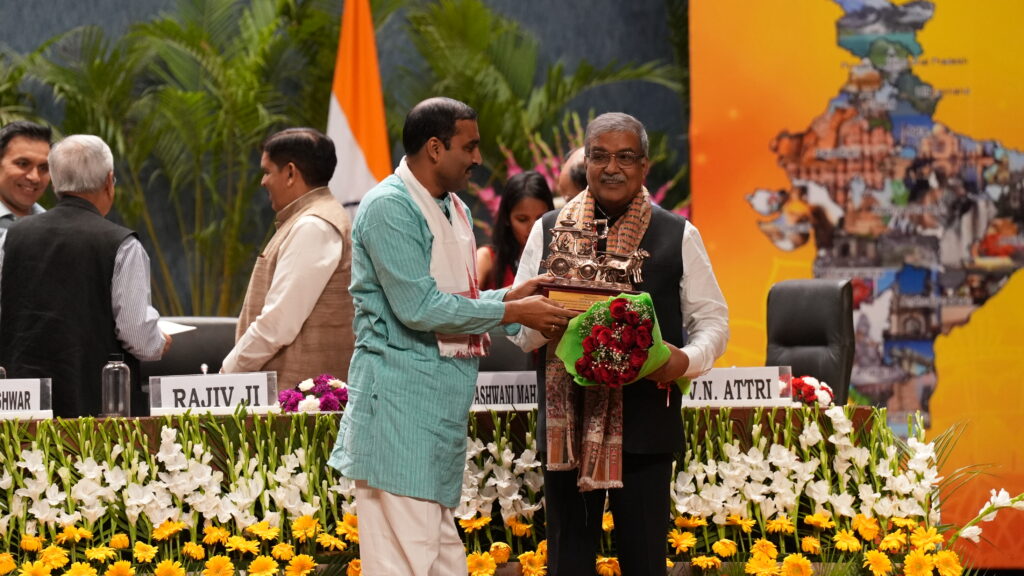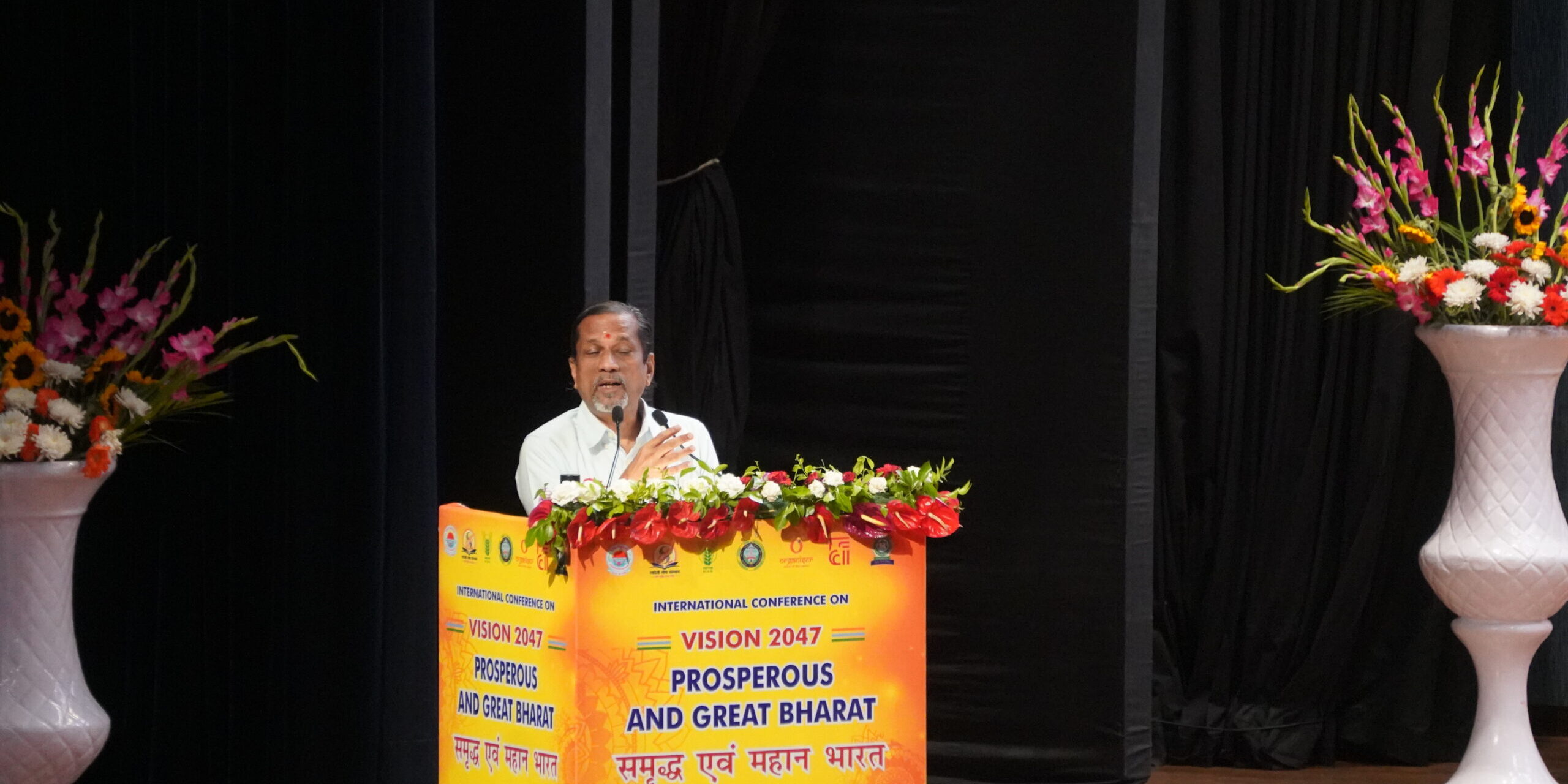International Conference Vision 2047: Prosperous and Great Bharat
Plenary Session-4 Report
Way Forward for Bharat to Grow
Date: April 25, 2025
Time: 02:30 pm
Venue: Bharat Ratna C. Subramaniam Auditorium
Speakers: Dr. Sridhar Vembu, Sh. Sidharth Ji, Dr. Dhanpat Ram Ji, Dr. Tankeshwar Ji, Prof. R. C. Aggarwal
Session Incharge: Prof. Somnath KUK, Prof. Rajeev Ji, SJM
Plenary Session-4 of the International Conference Vision 2047: Prosperous and Great Bharat focused on outlining a comprehensive and holistic roadmap for Bharat’s future growth. The session brought together esteemed speakers including Padma Shri Dr. Sridhar Vembu, Sh. Sidharth Ji, Dr. Dhanpat Ram Ji, Dr. Tankeshwar Ji, and Prof. R. C. Aggarwal, who shared their insights on sustainable development, technological innovation, environmental responsibility, and rural empowerment.

Padma Shri Dr. Sridhar Vembu opened the session with a powerful message on Bharat becoming the foundation for establishing eternal peace. He stressed the need for Bharat to take charge of its technological future by creating indigenous, high-tech research institutes, with a special focus on youth empowerment and career development. He highlighted the economic potential of the Indian tech ecosystem, citing revenue of $90 billion and profits of $30 billion. In comparison, global giants like Apple earn around $300 million in daily profits through technology-driven growth. He also touched upon issues of disparity in society, pointing out the contrast between prices of essentials like milk and liquor. While praising technologies like OpenAI, he also cautioned against potential ethical and practical issues, such as the “sketch problem.” His vision concluded with a prayer for a joyful and dedicated journey toward a prosperous Bharat.

Dr. Dhanpat Ram emphasized the necessity of balancing environmental protection with the welfare of people. With over 10 crore people (6.5% of the population) living in rural areas plagued by poverty and agricultural challenges, he stressed the importance of transitioning to innovation-based and tech-driven farming solutions. He acknowledged Bharat’s current position behind the US and China in technological dominance but remained optimistic due to India’s youth potential and the push toward Atma Nirbhar Bharat. He pointed to the drastic reduction in API imports and highlighted the importance of semiconductor availability. Drawing attention to China’s dumping practices and restrictive trade behavior, he endorsed India’s agreements with the US as a move toward greater autonomy. Dr. Ram also warned of possible resistance from global institutions like the World Bank regarding indigenous technology advancements. He concluded that India is on the cusp of Industry 4.0 and must work to scale its economy from $4 trillion to $40 trillion. According to him, the government must strike a balance between regulation and promotion, while ensuring that environmental goals progress hand in hand with economic growth.
Dr. Tankeshwar Ji, Vice Chancellor of the Central University of Haryana, drew attention to the significant technological and knowledge gap between urban and rural Bharat. Comparing the divide to the contrast between a lamp and a termite, he asserted that the “light” of the future lies in spreading education and the effective use of artificial intelligence. He highlighted a concerning public health issue—Vitamin D deficiency, especially among women and children (14%)—and proposed innovative dietary interventions like millet-based biscuits to address nutritional gaps. His remarks emphasized the need to ensure rural Bharat is not left behind in the wave of technological advancement.
Shankar Ji, among the audience, brought a deeply reflective perspective to the session by questioning whether true global progress had been made in terms of environmental preservation. He emphasized that environmental degradation is rooted in unsustainable lifestyle choices and argued for treating environmental studies as an academic discipline. His framework for sustainable development focused on five pillars: environment, development, employment, equity, and education. He encouraged conscious consumption and greater public awareness of ecological impact. Highlighting the ecological harm caused by corporations such as Coca-Cola and Pepsi, he warned against the influence of corporate funding in shaping biased environmental narratives. According to him, true sustainability lies in living in harmony with nature and prioritizing life forms and choices that support ecological balance.
The session concluded with a unified vision for Bharat’s path forward—rooted in self-reliance, innovation, environmental consciousness, and rural development. The speakers collectively called for structural reforms, youth engagement, and a balanced approach to technology and nature. With a clear focus on harnessing Bharat’s internal strengths and wisdom, this session laid a strong foundation for the nation’s aspiration to become a global leader by 2047.






